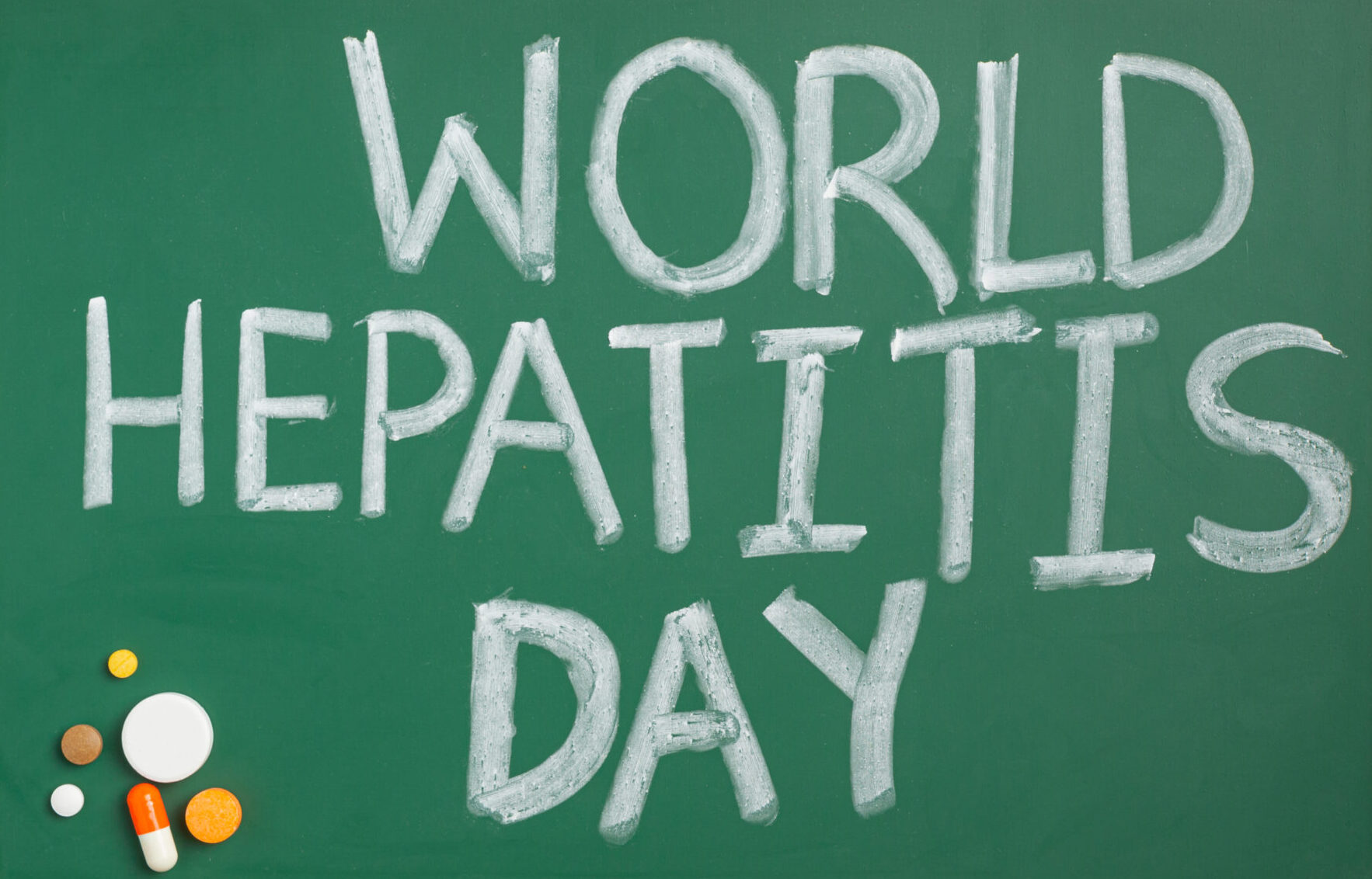Join us on World Hepatitis Day 2023 as we unite in a global call to action to eliminate hepatitis. This blog delves into the impact of the disease, the progress made, and the challenges ahead. Together, let’s raise awareness, inspire change, and work towards a future free from this silent epidemic.
The theme for World Hepatitis Day 2023 is “We’re not waiting,” a powerful call to action to accelerate the elimination efforts of viral hepatitis. This urgent initiative emphasizes the necessity of immediate testing and treatment for those in need. Individuals and communities globally are taking charge, driving positive change in their lives and shaping a healthier world.
The objective of World Hepatitis Day 2023, as set by the global community, is “We’re not waiting.” The theme emphasizes the urgency to accelerate the elimination efforts of viral hepatitis and calls for immediate testing and treatment for those who need it. The aim is to create awareness about hepatitis on a global scale, promote understanding of the disease, and take proactive actions to combat this silent epidemic. By raising awareness, encouraging testing and early diagnosis, and advocating for improved access to healthcare services, the ultimate goal is to prevent new infections and reduce the burden of hepatitis-related illnesses and deaths worldwide.
Every year on July 28th, World Hepatitis Day is dedicated to raising global awareness about hepatitis. The urgency of this mission arises from the alarming fact that someone loses their life to hepatitis or related conditions every 30 seconds worldwide. Acquiring accurate knowledge and taking prompt action is vital. The campaigns and activities on World Hepatitis Day 2023 aim to educate individuals comprehensively about the disease and its various aspects.
WHAT IS HEPATITIS?
Hepatitis is a medical condition characterized by inflammation of the liver. It can be caused by various factors, including viral infections, alcohol and drug abuse, autoimmune disorders, and certain medications or toxins. The most common types of viral hepatitis are hepatitis A, hepatitis B, hepatitis C, hepatitis D, and hepatitis E. These viruses can be transmitted through contaminated food or water, unprotected sexual contact, sharing needles or syringes, or from an infected mother to her baby during childbirth.
Hepatitis can range from mild, acute illnesses that resolve on their own to more severe and chronic conditions that can lead to long-term liver damage, cirrhosis, liver failure, or even liver cancer. Symptoms of hepatitis can include fatigue, jaundice (yellowing of the skin and eyes), abdominal pain, nausea, vomiting, and loss of appetite.
Prevention is essential for hepatitis, and there are vaccines available for hepatitis A and B, which can effectively reduce the risk of infection. Additionally, practicing good hygiene, avoiding high-risk behaviors, and getting tested for hepatitis are important steps in preventing transmission and ensuring early detection and treatment. Proper medical management can help manage chronic hepatitis and prevent further complications. If you suspect you may have hepatitis or are at risk, it is crucial to seek medical advice and get tested promptly.
Preventive measures for hepatitis are significant in lessening the gamble of contamination and the spread of the illness. Here are a few vital preventive measures for hepatitis:
- ** Vaccination**: For hepatitis An and B, immunizations are accessible and exceptionally successful. Guarantee you and your relatives get the prescribed inoculations to safeguard against these sorts of hepatitis.
- ** Practice Great Hygiene**: Clean up completely with cleanser and water, particularly in the wake of utilizing the restroom, prior to taking care of food, and subsequent to being openly puts. Try not to share individual things like razors, toothbrushes, and needles.
- ** Safe Sexual Practices**: Practice safe sex by utilizing condoms to decrease the gamble of hepatitis B and other physically communicated diseases.
- ** Try not to Share Needles**: In the event that you use drugs, never share needles or needles, as this is a huge gamble factor for hepatitis B and C transmission.
- ** Practice Food Safety**: Be wary of the food and water you polish off, particularly while going to locales with unfortunate disinfection. Guarantee that food is prepared completely and drink just spotless, packaged, or bubbled water.
- ** Screening and Testing**: Assuming you are at higher gamble for hepatitis, consider getting tried routinely. Early discovery can prompt convenient mediation and forestall further complexities.
- ** Medical services Safety**: Guarantee that medical services settings follow appropriate disease control works on, including the utilization of clean hardware and safe infusion rehearses.
- ** Keep away from Liquor and Destructive Substances**: Unreasonable liquor utilization can harm the liver and increment the gamble of hepatitis. Staying away from liquor and sporting illicit drug use can assist with keeping up with liver wellbeing.
- ** Pre-birth Care**: Pregnant ladies ought to go through hepatitis B testing to decide whether they need preventive measures to shield their infants from hepatitis B transmission.
- ** Hepatitis C Transmission Prevention**: For hepatitis C, there is no antibody accessible. Preventive measures incorporate trying not to share individual things like razors and toothbrushes and looking for clinical consideration assuming you suspect you have been presented to the infection.
Through this blog, we have explored the significance of World Hepatitis Day and its objective of spreading awareness about hepatitis on a global scale. The alarming statistics, where someone loses their life to hepatitis or related conditions every 30 seconds worldwide, underscore the importance of accurate knowledge and prompt action.
By educating ourselves and others, getting tested, and promoting a healthy lifestyle, we can play an active role in preventing liver diseases and safeguarding our well-being. Supporting liver-friendly initiatives and engaging in community events further strengthens the collective fight against hepatitis.
Let us harness the power of social media to share vital messages, and advocate for better liver care and access to healthcare services. By supporting liver research and participating in clinical trials, we contribute to advancements in medical science that will further enhance our understanding and management of liver-related conditions.
World Hepatitis Day serves as a crucial reminder that each of us has a role to play in eliminating viral hepatitis. By taking proactive measures and working together, we can build a healthier world, free from the burden of this preventable and treatable disease.
So, on this World Hepatitis Day, let’s pledge to be part of the solution. Let’s commit to the theme “We’re not waiting” and take action to protect ourselves, our loved ones, and our communities from the impact of hepatitis. Together, we can make a difference and create a future where hepatitis is no longer a global health threat.


